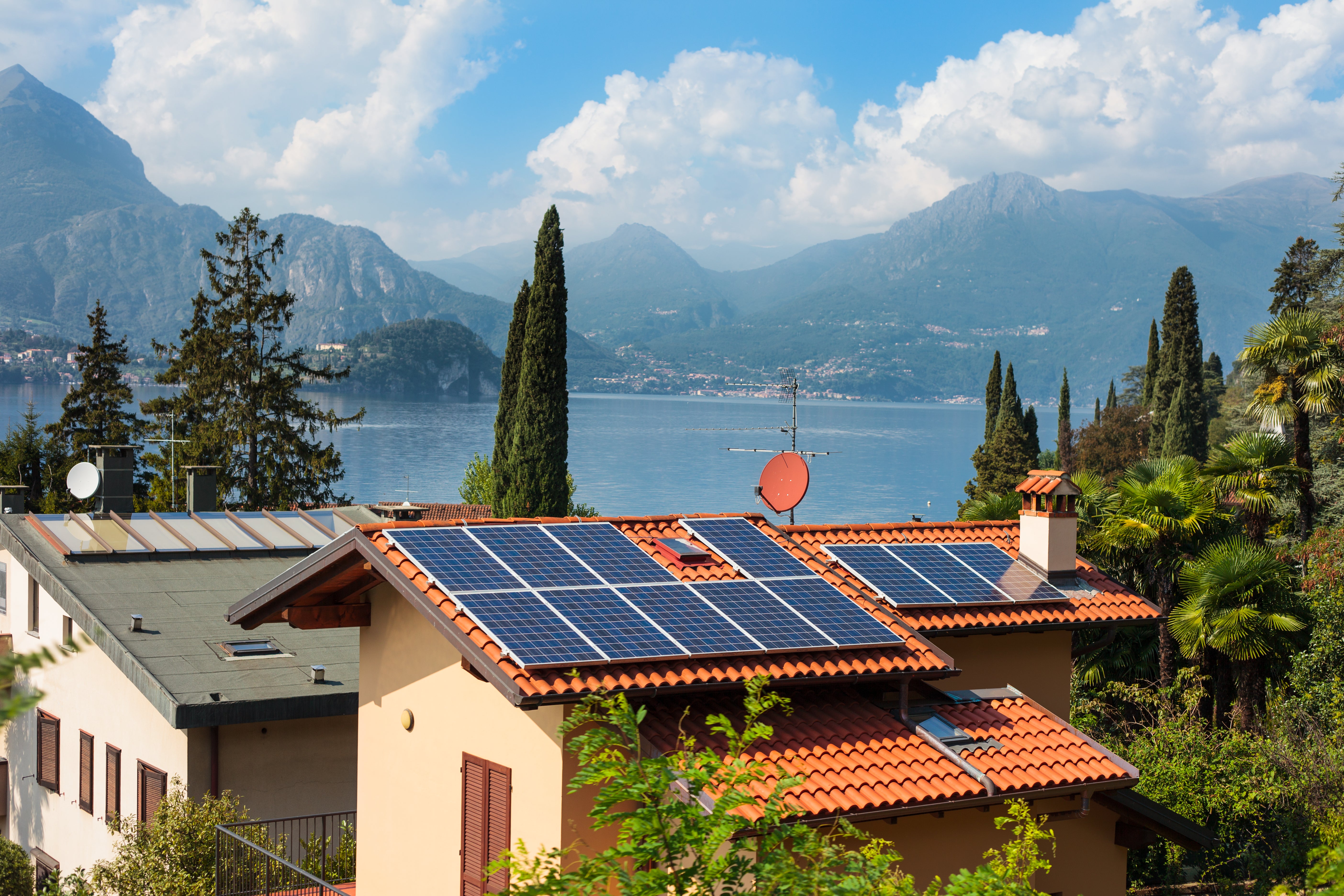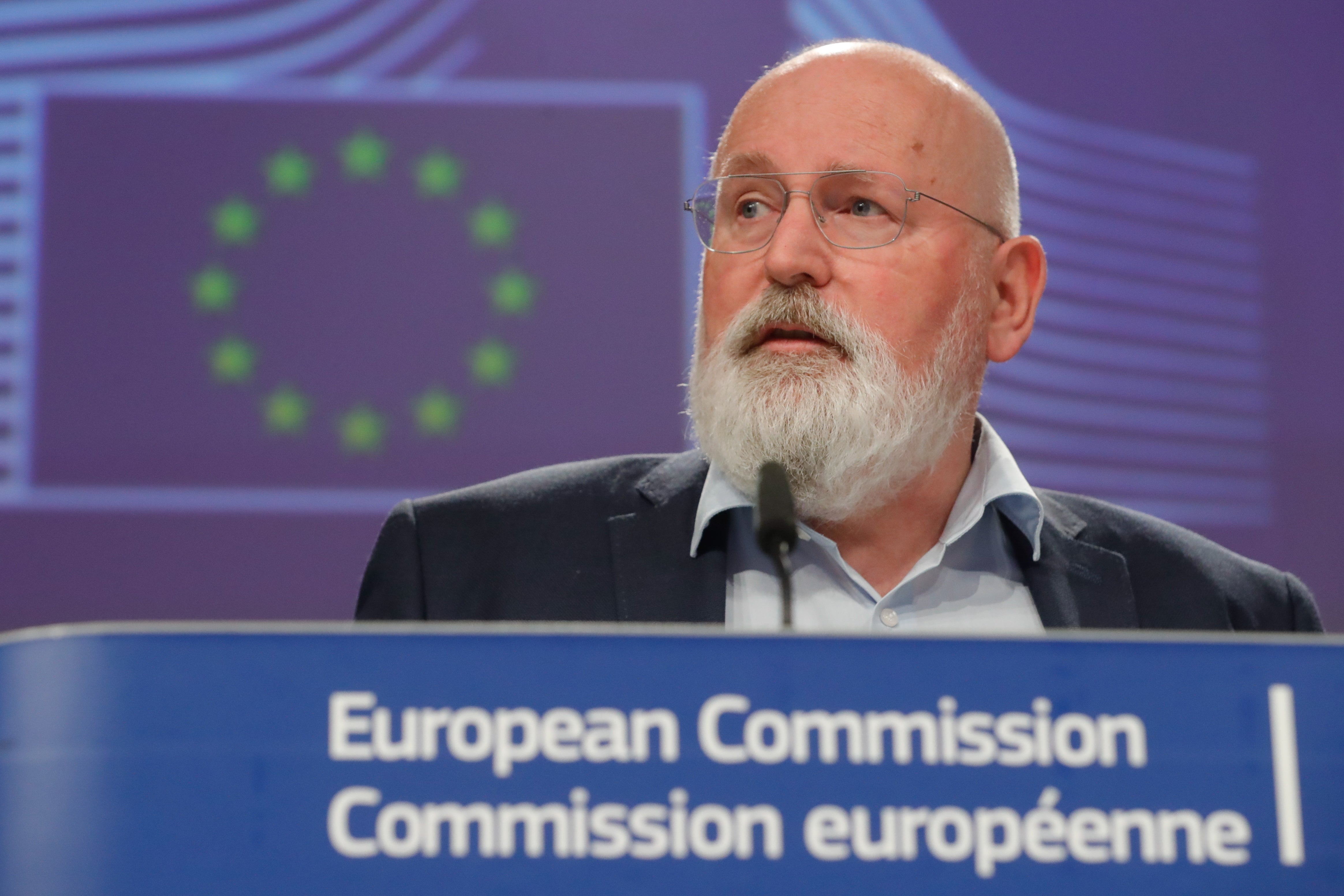Solar panels set to be mandatory on all new buildings under EU plan
New proposal aims to rapidly reduce dependence on Russian fossil and supercharge Europe’s transition to green energy

Your support helps us to tell the story
From reproductive rights to climate change to Big Tech, The Independent is on the ground when the story is developing. Whether it's investigating the financials of Elon Musk's pro-Trump PAC or producing our latest documentary, 'The A Word', which shines a light on the American women fighting for reproductive rights, we know how important it is to parse out the facts from the messaging.
At such a critical moment in US history, we need reporters on the ground. Your donation allows us to keep sending journalists to speak to both sides of the story.
The Independent is trusted by Americans across the entire political spectrum. And unlike many other quality news outlets, we choose not to lock Americans out of our reporting and analysis with paywalls. We believe quality journalism should be available to everyone, paid for by those who can afford it.
Your support makes all the difference.Solar panels would be mandatory on all new buildings in the European Union under a new proposal aimed at ending its reliance on Russian fossil fuels by 2027 and supercharging its transition to green energy.
The “solar rooftop initiative” in the European Commission’s REPowerEU plan would introduce a phased-in legal obligation to install solar panels on new public and commercial buildings, as well as new residential buildings.
“We can also lead by example,” Frans Timmermans, who is leading the commission’s work on the European Green Deal, said at a news conference announcing the plan on Wednesday. “Let us show as a commission how quickly we can put solar panels on our buildings.”

The initiative forms part of the commission’s drive to scale up and speed up renewable energy in power generation, industry, buildings and transport, to accelerate the EU’s independence from Russian imports, give a boost to the green transition and reduce energy prices over time.
The detailed plan published on Wednesday comes after the commission, the European Union’s executive arm, called for the rapid phase-out of Russian fossil fuels and an acceleration of the European Green Deal in March in response to Russia’s invasion of Ukraine.
European leaders then agreed to fully phase out Europe’s dependency on Russian gas, oil and coal imports as soon as possible at the European Council meeting later that month, and asked the commission to develop a plan by the end of May.
The REPowerEU plan published on Wednesday is the commission’s detailed proposal of how to do just that. The plan has three main pillars: energy savings, diversification of energy supplies, and accelerated roll-out of renewable energy.
The commission has said the plan will require an additional investment of €210bn (£178bn) between now and 2027 from the private and public sector across Europe, describing it as a “downpayment” on the bloc’s future independence and security. The proposal says cutting Russian fossil fuel imports can save the EU almost €100bn a year.
“It is clear we need to put an end to this dependence [on Russian fossil fuels] as soon as possible and a lot faster than we had forseen before this war,” said Mr Timmermans. “In March we showed it could be done, the European Council in Versailles decided it should be done, today we show how it will be done.”
Accelerating the rollout of renewables
The proposed mandatory solar panel roll out is part of the ‘renewable energy’ pillar.
The commission is proposing to increase its current target for renewables to produce 40 per cent of the EU’s energy by 2030, raising it to 45 per cent.
In order for this to happen, the commission is proposing to double the rate of deployment of heat pumps, to produce 10 million tonnes of domestic renewable hydrogen by 2030, and to double wind and solar capacity.
By 2030, solar energy will also be the largest electricity source in the EU with more than half coming from rooftops, said Kadri Simson, the EU commissioner for energy.
The commission is also calling on member states to create dedicated “go-to” areas for renewables in places with lower environmental risks, where it says permitting processes should be shortened and simplified.
It says it will roll out contracts to support the update of green hydrogen by industry and will use emission trading revenues to support the switch away from Russian fossil fuel dependencies. It says it will also “intensify” work on the supply of critical raw materials for the renewable transition and prepare a legislative proposal.
“There is huge potential for rooftop solar ... there is a huge potential for on and offshore wind, there is a huge potential for increased biomethane production,” said Mr Timmermans. “If we do all these things we will first of all reduce our imports of Russian gas by one-third already this year and then we will, working towards 2027, reduce our dependency to zero.”
Saving energy
In terms of saving energy, the commission is proposing to raise its current target for reducing energy consumption by 2030 via energy efficiency, from 9 per cent to 13 per cent.
It is also encouraging member states to use policy to boost energy savings, such as reduced VAT rates on energy-efficient heating systems, building insulation and appliances and products, or by strengthening national energy requirements of new buildings.
In the short term, citizens and businesses can save energy by reducing heating temperatures and reducing the use of air conditioning, switching off lights, using more public transport and using household appliances more efficiently, the commission added.
“The cheapest energy is the energy you don’t use,” said Mr Timmermans.
Diversifying energy supplies
In the proposal, the commission says it is considering the development of a “joint purchasing mechanism”, which will contract and negotiate gas purchases on behalf of participating member states. It will also enable joint purchasing of renewable hydrogen.
The commission will also consider legislative measures to insist on diversification of gas supply over time by member states, it added.
Join our commenting forum
Join thought-provoking conversations, follow other Independent readers and see their replies
Comments